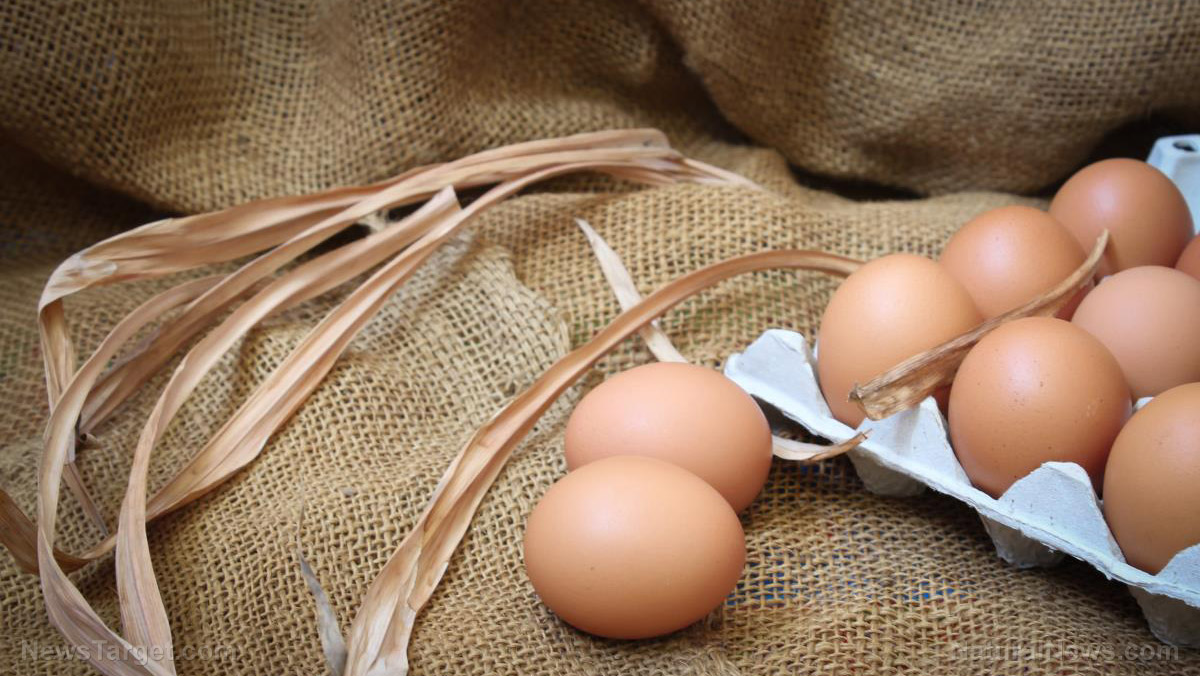Cordyceps mushrooms found to protect from allergens
08/27/2019 / By Evangelyn Rodriguez

Cordyceps is a genus of club-shaped parasitic fungi that are known to kill underground insects and arthropods. The most widely collected of these mushrooms is Cordyceps militaris, which is known for mummifying insects and using them as sources of biomass to produce spores. In a recent study published in The American Journal of Chinese Medicine, researchers from Southern Taiwan University of Science and Technology examined the bioactivity of the extract obtained from silkworm pupa-cultivated C. militaris fruit bodies. They found that this parasitic mushroom contains compounds like beta-sitostenone that exhibit anti-allergic activity.
The bug-killing mushroom as an herbal medicine
The mushroom C. militaris is a medicinal fungi that erupts from insects. It usually preys on the pupa or larva of butterflies, moths, and silkworms and uses its mycelium to mummify them. During this process, the insect is kept alive to produce the biomass that the mushroom needs for reproduction. Because it targets insect larvae or pupae that are buried in the ground or in well-decayed wood, only the fruiting bodies of C. militaris — which are orange in color and has a pimply texture — are visible in the surface.
According to several studies, C. militaris offers a lot of health benefits, which is why it is widely used as an herbal medicine in East Asia. In traditional Chinese medicine, C. militaris is known to treat fatigue, kidney disease, and low sex drive. Animal studies have also demonstrated that C. militaris possesses antibacterial, antiviral, immunomodulatory, and anti-aging or antioxidant properties. Other health benefits associated with C. militaris include:
- Improved exercise performance
- Antitumor activities
- Reduced blood sugar levels
- Decreased LDL or bad cholesterol levels
- Protection from heart injuries
- Anti-inflammatory properties
C. militaris is also a good source of important chemicals that are beneficial to human health. High amounts of amino acids such as lysine, glutamic acid, proline, and threonine can be found in its fruiting bodies. Unsaturated fatty acids can also be sourced from them, with linoleic acid being the most abundant. Cordycepin, a compound that can inhibit DNA and RNA synthesis and suppress the replication of viruses, can also be obtained from C. militaris.
C. militaris extract can ameliorate allergic reaction in mice
The researchers investigated the anti-allergic activity of an ethanol extract prepared from silkworm pupa-cultivated C. militaris fruiting bodies. They tested the extract on activated mast cells — also called allergy cells — which are responsible for triggering immediate allergic reactions.
Inside the body, mast cells can cause allergic symptoms by releasing mediators that are either produced by them or stored inside them. This process is called degranulation. It is prompted by the antibody IgE, which is present on the surface of mast cells and has the ability to bind to allergens. Other substances can also activate mast cells, such as medications, infections, and insect or reptile venom.
The researchers reported that treatment with the C. militaris ethanol extract significantly inhibited the release of beta-hexosaminidase, a degranulation marker, and reduced the mRNA levels of tumor necrosis factor-alpha and interleukin-4 in mast cells. This was after they sensitized the cells with 2,4-dinitrophenol-specific IgE and stimulated them with human serum albumin conjugated with 2,4-dinitrophenol. They also found that oral administration of 300 milligram per kilogram (mg/kg) ethanol extract significantly ameliorated IgE-induced allergic reaction in mice with passive cutaneous anaphylaxis.
When the researchers performed Western immunoblotting, they found that incubating mast cells with the ethanol extract significantly inhibited the Syk/PI3K/MEKK4/JNK/c-jun biochemical cascade, which causes the expression of various allergic cytokines. Furthermore, the ethanol extract suppressed Erk activation and PLC-gamma evocation, which could respectively evoke the synthesis of lipid mediators and Ca2+ mobilization to induce degranulation in stimulated mast cells. The researchers identified beta-sitostenone as the compound present in C. militaris that inhibits beta–hexosaminidase secretion from activated mast cells.
Based on these findings, the researchers concluded that C. militaris contains bioactive compounds that can inhibit the immediate degranulation and de novo synthesis of allergic lipid mediators and cytokines in activated mast cells. This makes it a promising alternative medicine for the prevention of allergic reactions.
Sources include:
Tagged Under: aging, allergies, allergy, alternative medicine, Amino Acids, anti-aging, anti-inflammatory, antibacterial, antioxidant, antitumor, antiviral, bug-killing mushrooms, cordyceps, Cordyceps militaris, degranulation, disease treatments, food cures, food is medicine, functional food, heart health, herbal medicine, herbs, IgE, immune system, immunomodulatory, insect-killer, longevity, mushrooms, mycelium, natural cures, natural medicine, parasitic fungi, parasitic mushroom, prevention, remedies, research, TCM, traditional medicine, underground insects, unsaturated fatty acids
RECENT NEWS & ARTICLES
Allergies.news is a fact-based public education website published by Allergies News Features, LLC.
All content copyright © 2018 by Allergies News Features, LLC.
Contact Us with Tips or Corrections
All trademarks, registered trademarks and servicemarks mentioned on this site are the property of their respective owners.








